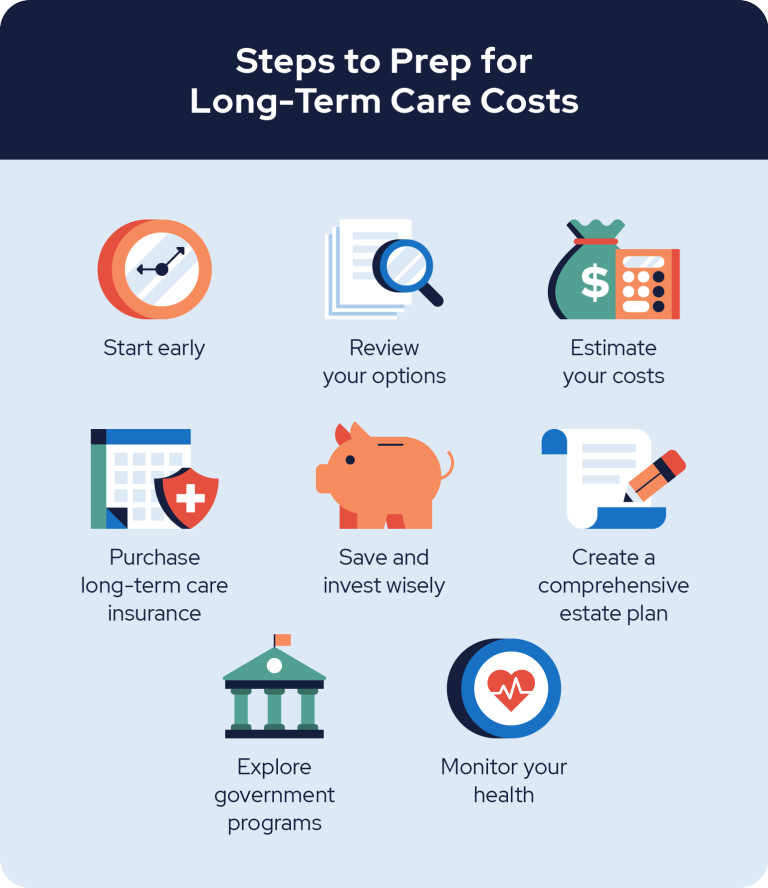Quote - Lena Horne & Mason Cooley
"It's the way you carry it.
Compassion brings us to a stop,
and for a moment, we rise above ourselves."
While 1 in 1200 would need Homeowners insurance which we all put on our homes, 1 in 2 will eventually need long-term care and it could drain your finances quickly. The annual median Adult Day Care is $34,675; Assisted Living Private Room is $54,000; In-Home Health with Aide is $61,776; Nursing Home Private Room is $108,405.
Below is what could be done to prepare:
How to plan for Long-Term Care
- Start early: Plan for long-term care costs well before you anticipate needing care. The earlier you start, the more options you'll have for funding and lower premiums for insurance.
- Review your options: Research the various long-term care options available, such as in-home care, assisted living, and nursing homes. Each option has different costs associated with it. Nursing homes are the most expensive form of long-term care (~$9,000 per month), so take this into consideration.
- Estimate your costs: Calculate your potential long-term care costs based on your chosen option and location. Consider factors like the level of care you might need and inflation rates. Online calculators and financial advisors can assist with these estimates
- Purchase long-term care insurance: Obtain long-term care insurance to help cover future expenses. This insurance can help protect your assets and reduce the financial burden on your family — compare policies, premiums, and benefits to find one that suits your needs. The average cost of long-term care insurance premiums are around $950.
- Save and invest wisely: Create a dedicated savings plan for long-term care costs. You can use tools like Health Savings Accounts (HSAs) or annuities to set aside money for health care expenses. Invest your savings wisely to maximize growth.
- Create a comprehensive estate plan: Work with an attorney to create a comprehensive estate plan that includes provisions for long-term care. This may involve setting up a trust, designating a power of attorney, and establishing health care directives.
- Explore government programs: Look into government programs like Medicaid, especially if your resources are limited. Medicaid can help cover long-term care costs for those who qualify.
- Monitor your health: Leading a healthy lifestyle can reduce the risk of needing long-term care. Regular exercise and a balanced diet can help maintain your physical and mental health.
Courtesy - Retireguide.com

